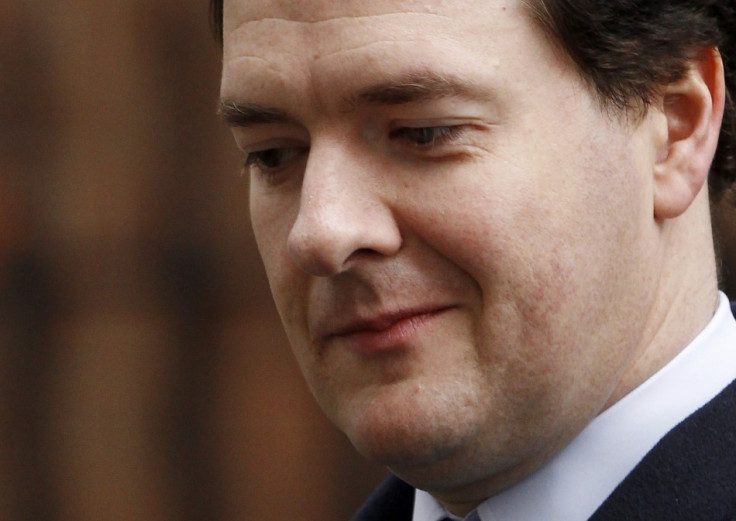UK Budget Deficit Shrinks in October

Britain's budget deficit fell in October as the economic recovery gathers pace.
The Office for National Statistics (ONS) said public sector net borrowing fell 0.2% to £8.1bn in the month when compared with a year before.
That figure excludes the impact of bank bailouts, the transfer of the Royal Mail pension fund to the public purse, and coupon payments from gilts bought under the Bank of England's quantitative easing programme.
"Britain's hard work is paying off, the government's long-term economic plan is working, and the deficit is down by a third," said a statement from the Treasury.
"But today's figures remind us that the job is far from done and a growing economy alone will not be enough to eliminate the deficit.
"The only way to ensure that the recovery is sustainable and the deficit keeps on coming down is to carry on taking difficult decisions to control government spending."
Ahead of the public finance data release, the ONS said it would not include the £2bn made from the privatisation of Royal Mail. It would instead be counted as a reclassification of assets.
However, the ONS said £300m was added to the government's borrowing figures because the 10% shareholding given to Royal Mail employees counted as a gift from the public to the household sector.
Public sector net debt hit £1.2tn in October, excluding the cost of bank bailouts, a rise across the year of £64.4bn. It is equivalent to 75.4% of GDP.
The government is trying to erase the structural debt in public finances through an austerity programme which has seen it shave billions off of spending, such as on welfare and local government.
"David Cameron and George Osborne have now borrowed more in the three years since May 2010 than Labour did over 13 years," said Chris Leslie, Labour's shadow chief secretary to the Treasury.
"This is the cost of their economic failure and the three damaging years of flatlining and falling living standards we have seen since the election.
"David Cameron and George Osborne are now set to break their promise to balance the books by 2015. And borrowing is forecast to be over £200bn more than planned simply to pay for the costs of their economic failure."
The economy is beginning to recover from its post-financial crisis slump. Economic growth has accelerated across the first three quarters of 2013, from 0.3% in the first to 0.8% expansion in the third.
© Copyright IBTimes 2024. All rights reserved.






